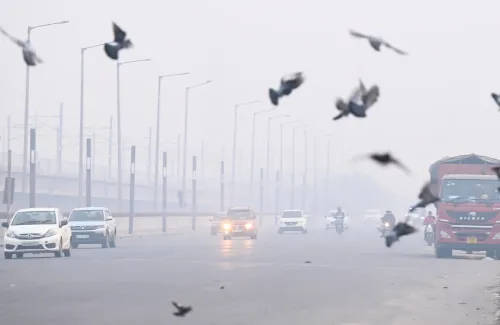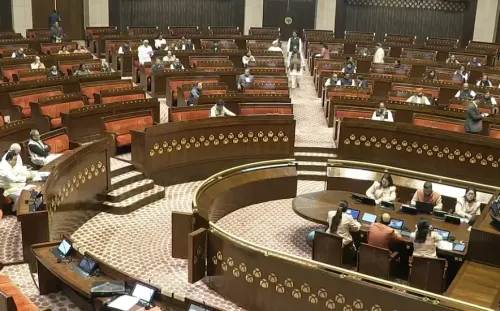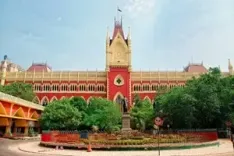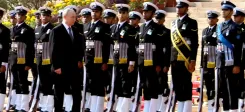Supreme Court Directs Centre to Provide Data on Triple Talaq Cases Against Muslim Men
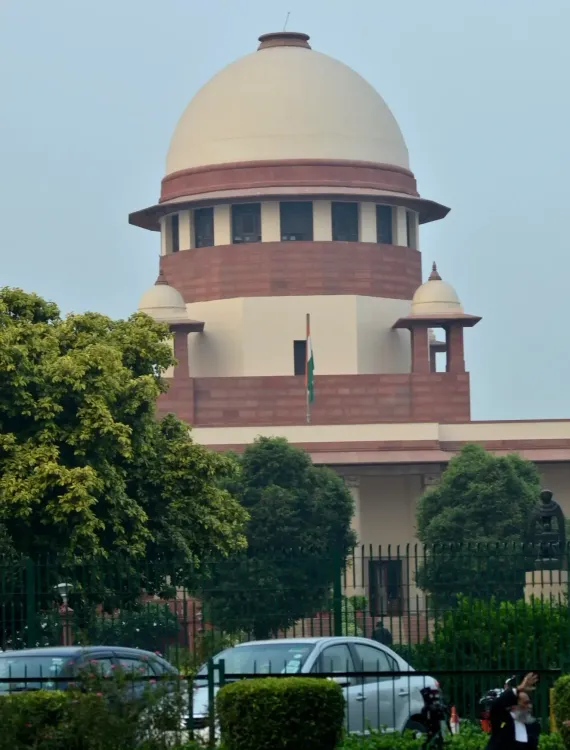
Synopsis
Key Takeaways
- Supreme Court demands data from Centre on triple talaq cases.
- Petitions argue the 2019 law is unconstitutional.
- Triple talaq was previously ruled ineffective by the Shayara Bano case.
- The Centre defends the law as essential for protecting women's rights.
- The final hearing is set for the week of March 17.
New Delhi, Jan 29 (NationPress) The Supreme Court directed the Centre to provide information on criminal cases filed under the 2019 Muslim Women (Protection of Rights on Marriage) Act, which makes the practice of triple talaq by Muslim men a criminal offense.
A Bench led by Chief Justice of India, Sanjiv Khanna, was reviewing multiple petitions from various Muslim organizations questioning the constitutionality of the 2019 law passed by Parliament.
The petitioners argued that, following the Shayara Bano ruling, where the practice of triple talaq was deemed legally ineffective, it should not be subject to criminalization.
In 2017, the Constitution Bench ruled in the Shayara Bano Vs. Union of India case that talaq-e-biddat (triple talaq) violated fundamental rights and women's equality under the Constitution, and recommended that it be punishable.
The CJI Khanna-led Bench instructed Solicitor General Tushar Mehta, the second-highest law officer of the Centre, to submit data on the number of FIRs and charge sheets filed against Muslim men for issuing instant triple talaq to terminate marriages.
The apex court acknowledged the petitioners' argument that triple talaq should not be criminalized since the practice is already banned and cannot lead to divorce by simply repeating the word talaq three times.
The Bench, which also included Justice Sanjay Kumar, scheduled a final hearing for the petitions during the week of March 17.
In an affidavit submitted to the Supreme Court, the Centre defended the constitutional validity of the Muslim Women (Protection of Rights on Marriage) Act, 2019.
“It was observed that the Supreme Court's decision to annul talaq-e-biddat has not sufficiently deterred the incidence of divorces via this method among certain Muslim communities. Victims of talaq-e-biddat are often left with no recourse but to approach the police, who are unable to act due to the lack of punitive measures in place,” the affidavit stated.
“Thus, to prevent this practice, there is an urgent requirement for stringent regulations that deter Muslim husbands from resorting to instantaneous and irrevocable talaq,” the affidavit from the Union Ministry of Law and Justice noted.
It emphasized that talaq-e-biddat legitimizes the abandonment of wives, resulting in a public wrong that undermines women's rights and the institution of marriage.
The Parliament, in its wisdom, enacted this law to safeguard the rights of married Muslim women facing divorce through triple talaq, contributing to the broader constitutional objectives of gender justice and equality, the affidavit continued.
Furthermore, the Centre asserted that the Supreme Court has consistently maintained that it cannot question the legislative wisdom or delve into what the law should entail.
“It is the sole responsibility of the legislature to define what is appropriate for the public, which must be allowed the greatest freedom to operate within its powers, or else progress is impeded,” the affidavit elucidated.
“Determining offenses and setting penalties are fundamental functions of the State. The decision to criminalize specific conduct and the punishments for such actions should be governed by the legislature, considering current social conditions,” the affidavit added.
Additionally, the affidavit mentioned that a similar challenge to the Muslim Women (Protection of Rights on Marriage) Ordinance, 2018, which mirrored the current law, was dismissed by the Delhi High Court in September 2018.
“It is argued that since the Shayara Bano case ruled the practice of triple talaq as manifestly arbitrary, it cannot be claimed that a law criminalizing the practice is equally arbitrary,” the Centre contended in front of the Supreme Court, adding that the assertion that marriages governed by personal law are exempt from general criminal law lacks foundation, as “marriages are a social institution in which the State has a vested interest in safeguarding.”




